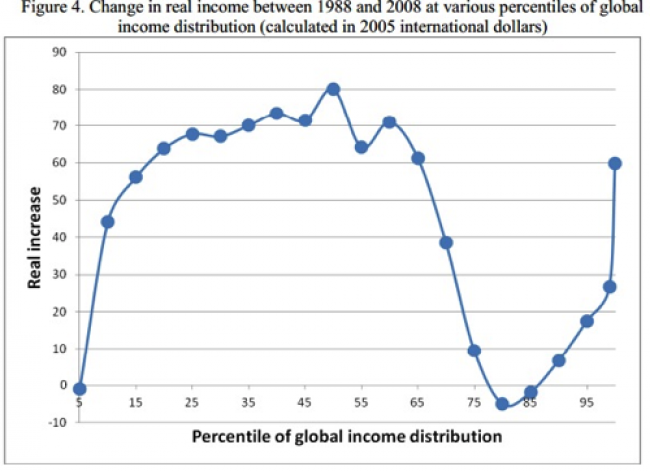Brendan O’Neill reminds us that being a supporter of free speech requires you to support those who don’t always agree with you or express themselves in ways you’re comfortable with:
It’s the 21st century and Europe is meant to be an open, enlightened continent, and yet a man has just been sentenced to jail — actual jail — for something that he said. Will there be uproar? It’s unlikely. For the man is Dieudonné M’bala M’bala, the French comedian, and what he says — that Jews are scoundrels and the Holocaust is a fiction — is deeply unpleasant. Yet if we’re serious about freedom of speech, if we are truly committed to ensuring everyone has the liberty to think and say whatever they please, then the jailing of Dieudonné should outrage us as much as the attempts to shut down Charlie Hebdo or the jailing of a Saudi blogger for ridiculing religious belief. We should be saying ‘Je Suis Dieudonné’.
Due to the regimen of hate-speech laws in 21st-century Europe — which police and punish everything from Holocaust denial to Christian denunciations of homosexuality — Dieudonné has been having run-ins with the law for years. In 2009, a French court fined him €10,000 for inviting a Holocaust denier on stage during a gig. In March this year, a French court gave him a two-month suspended prison sentence for saying he sympathised with the attack on Charlie Hebdo and with the anti-Semite who murdered Jews at a Parisian supermarket a few days later. Now, this week, a Belgian court has given him an actual prison sentence: a court in Liège found him guilty of incitement to hatred for making anti-Semitic comments during a recent show and condemned him to two months in jail.
In all these cases, Dieudonné has been punished simply for thinking and saying certain things. This is thought-policing. It’s a PC, spat-and-polished version of the Inquisition, which was likewise in the business of raining punishment upon those who said things the authorities considered wicked. To fine or imprison people for expressing their beliefs is always a scandal, regardless of whether we like or hate their beliefs. Dieudonné really believes the Holocaust is a myth, as much as a Christian fundamentalist believes that people who have gay sex will go to hell or American liberals believe Hillary Clinton will make a good president. He is wrong, massively, poisonously so; but then, so are those Christians about gays and those liberals about Hillary. If every person who says wrong, malicious or stupid things were carted off to jail, Europe’s streets would be emptied overnight.
[…]
It is incredibly illiberal for the state to police hatred. Hatred might not be big or clever, but it’s only an emotion. And officialdom has no business telling us what we may feel — or think, or say, or write. Allowing the state to monitor belief represents a brutal reversal of the Enlightenment itself. John Locke, in his Letter Concerning Toleration (1689), set the tone for the Enlightenment as an attempt to ‘settle the bounds’ between the business of government and the business of morality. ‘The business of laws is not to provide for the truth of opinions, but for the safety and security of every particular man’s goods and person’, he wrote. That ideal is now turned on its head. Across Europe, governments ‘provide for the truth of opinions’, and in the process they silence those they don’t like and patronise the rest of us, reducing us to imbeciles incapable of working out what is right and wrong, and of speaking out against the wrong.
All hate-speech laws should be scrapped. Dieudonné should be freed. And a continent whose governments argue against the imprisonment of bloggers in Saudi Arabia while jailing comedians at home needs to take a long, hard look in the mirror.





